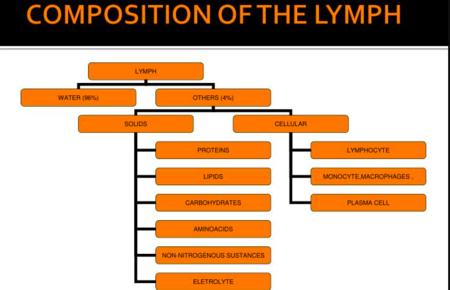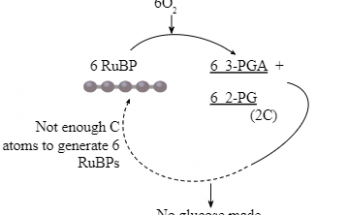Table of Contents
What is Lymph ?
Lymph is a clear, watery fluid that contains white blood cells, proteins, and other substances. It is produced by the body’s lymphatic system, which is a network of vessels and organs that helps to maintain fluid balance in the body and protect against infection.
Lymphatic system is a complex network of vessels, nodes and organs that play an important role in our immune system. Lymph is a critical component of our body’s defense against infections and diseases and it helps maintain the balance of fluids in our body.
The Lymphatic system is a vast network of vessels and organs that work together to transport Lymph and other fluids throughout the body. This system is responsible for filtering out waste products, cellular debris and other harmful substances from the body, while also helping to distribute essential nutrients and hormones.
In this article, we will explore the Composition of Lymph in detail, including its fluid, cellular and nutrient components and their roles.
Composition of Lymph
Composition of Lymph can be Divided into 3 parts
- Fluid Composition
- Cellular Composition
- Nutrient Composition
# Note that these categories are not mutually exclusive and can overlap. For example – lymphocytes are a type of cell, but they also produce proteins (i.e., antibodies) that are present in lymph. Similarly electrolytes and nutrients are components of the fluid but they are also important for the function of immune cells.
Also Check – How Lymph is Formed ?
Fluid Composition of Lymph
Lymph is a clear, colorless fluid that is similar to blood plasma. It is composed of water, electrolytes and some proteins. Lymph differs from blood in that it contains much less protein, no red blood cells and lower levels of oxygen and glucose. Lymph also has a higher concentration of waste products and cellular debris.the Composition of Lymph varies depending on where it is collected from in the body .It typically contains the following components –
- Water: Lymph is about 95% water.
- Electrolytes: Lymph contains electrolytes such as sodium, potassium, chloride and bicarbonate, which help to maintain fluid balance and pH levels in the body.
- Proteins: Lymph contains some proteins such as albumin and immunoglobulins (antibodies), which help to fight infection and maintain osmotic pressure in the body.
- Other solutes: Lymph may also contain other solutes such as glucose, amino acids and waste products.
Also Check – Composition Of Blood
Similarities and Differences with blood on the basis of Fluid Composition
- Lymph has a much lower protein concentration than blood. the protein concentration of Lymph is typically less than 1 g/dL, while blood has a protein concentration of around 7 g/dL. This difference in protein concentration contributes to the lower osmotic pressure of Lymph compared to blood.
- Lymph does not contain red blood cells, which are responsible for carrying oxygen throughout the body. Instead, oxygen is delivered to tissues via diffusion from the bloodstream.
- Lymph has lower levels of glucose compared to blood, which is the primary energy source for cells in the body. This is because Lymph does not transport oxygen or nutrients to tissues in the same way that blood does.
- Lymph has a higher concentration of waste products and cellular debris compared to blood. This is because Lymph is responsible for collecting and removing excess fluids, waste products and dead cells from tissues in the body.
Also Chexk -13 Important Differences between Lymph and Blood
Cellular Composition of Lymph
Cellular Composition of Lymph is critical for the immune response, as it contains a variety of immune cells that work together to recognize and neutralize foreign substances such as bacteria or viruses. The different types of immune cells in Lymph play specific roles in the immune response and their interactions are important for generating a coordinated and effective immune response against pathogens.
Cellular Composition of Lymph is as follows-
Lymphocytes
Lymphocytes are a type of white blood cell that play a critical role in the immune response. There are two main types of Lymphocytes: B cells and T cells. B cells are responsible for producing antibodies, which are proteins that help to recognize and neutralize foreign substances such as bacteria or viruses. T cells, on the other hand, help to destroy infected cells by recognizing and attacking cells that are infected with pathogens.
Macrophages
Macrophages are another type of immune cell that are found in Lymph. These cells are responsible for engulfing and digesting foreign substances, including bacteria and cellular debris. Macrophages are also important for presenting antigens to T cells, which helps to activate the immune response.
Natural killer cells
Natural killer cells are a type of Lymphocyte that are capable of recognizing and destroying cells that have been infected with viruses or have become cancerous.
Dendritic cells
Dendritic cells are a type of immune cell that are responsible for capturing and presenting antigens to T cells, which helps to activate the immune response.
Plasma cells
Plasma cells are a type of B cell that are responsible for producing large quantities of antibodies in response to an infection or vaccination.
Nutrient Composition of Lymph
Lymph contains water, electrolytes (such as sodium, potassium and chloride) and nutrients,
Lymph contains water, electrolytes and nutrients that are important for the metabolism and function of cells in the body. Following are the important Nutrient Composition of Lymph –
- Water: Like blood, Lymph is primarily composed of water, which makes up the majority of its fluid volume.
- Electrolytes: Lymph contains electrolytes such as sodium, potassium and chloride. These electrolytes are important for maintaining the balance of fluids in the body and for the proper functioning of cells.
- Nutrients: Lymph also contains nutrients such as glucose, amino acids and fatty acids. Glucose is an important source of energy for cells, while amino acids are the building blocks of proteins. Fatty acids are important for energy production and are also used to build cell membranes and other structures in the body.
- Vitamins -Lymph plays a crucial role in the transport of fats and fat-soluble vitamins such as vitamins A, D, E and K. These nutrients are absorbed from the small intestine and are transported to the bloodstream via the Lymphatic system.
According to an article in the journal Physiology, Lymphatic vessels in the small intestine called lacteals absorb dietary fats and fat-soluble vitamins, which are then transported to the Lymph nodes and eventually to the bloodstream via the thoracic duct.
Waste products
Lymph also contains small amounts of waste products, including excess nitrogen, which is produced during the breakdown of proteins in the body.
Frequently asked Questions on Composition of the Lymph
Question – What is Lymph?
Answer- Lymph is a clear, watery fluid that contains white blood cells, proteins and other substances. It is produced by the body’s Lymphatic System. Lymphatic System is a network of vessels and organs that helps to maintain fluid balance in the body and protect against infection.
Question – What is the Lymphatic System?
Answer- The Lymphatic System is a complex network of vessels, nodes and organs that play an important role in our immune system. It is responsible for filtering out waste products, cellular debris and other harmful substances from the body, while also helping to distribute essential nutrients and hormones.
Question – What are the three components of Lymph composition?
Answer- The three components of Lymph composition are fluid composition, cellular composition and nutrient composition.
Question – What are the similarities and differences between blood and Lymph based on fluid composition?
Answer- Lymph has a much lower protein concentration than blood, does not contain red blood cells and has lower levels of glucose compared to blood. Lymph also has a higher concentration of waste products and cellular debris compared to blood.
Question – What is the cellular composition of Lymph?
Answer- The cellular composition of Lymph includes Lymphocytes, macrophages, natural killer cells, dendritic cells and plasma cells.
Question – What are Lymphocytes and what is their role in the immune response?
Answer- Lymphocytes are a type of white blood cell that play a critical role in the immune response. There are two main types of Lymphocytes: B cells and T cells. B cells are responsible for producing antibodies, while T cells help to destroy infected cells.
Question – What are macrophages and natural killer cells?
Answer- Macrophages are immune cells that engulf and digest foreign substances like bacteria and cellular debris. Natural killer cells are Lymphocytes that recognize and destroy cells that have been infected with viruses or have become cancerous.
Question – What is the nutrient composition of Lymph?
Answer- The nutrient composition of Lymph includes water, electrolytes and nutrients such as glucose and amino acids that are important for the metabolism and function of cells in the body.
Also Check – 15 Important Functions of Lymph


8 Comments on “Composition of the Lymph”